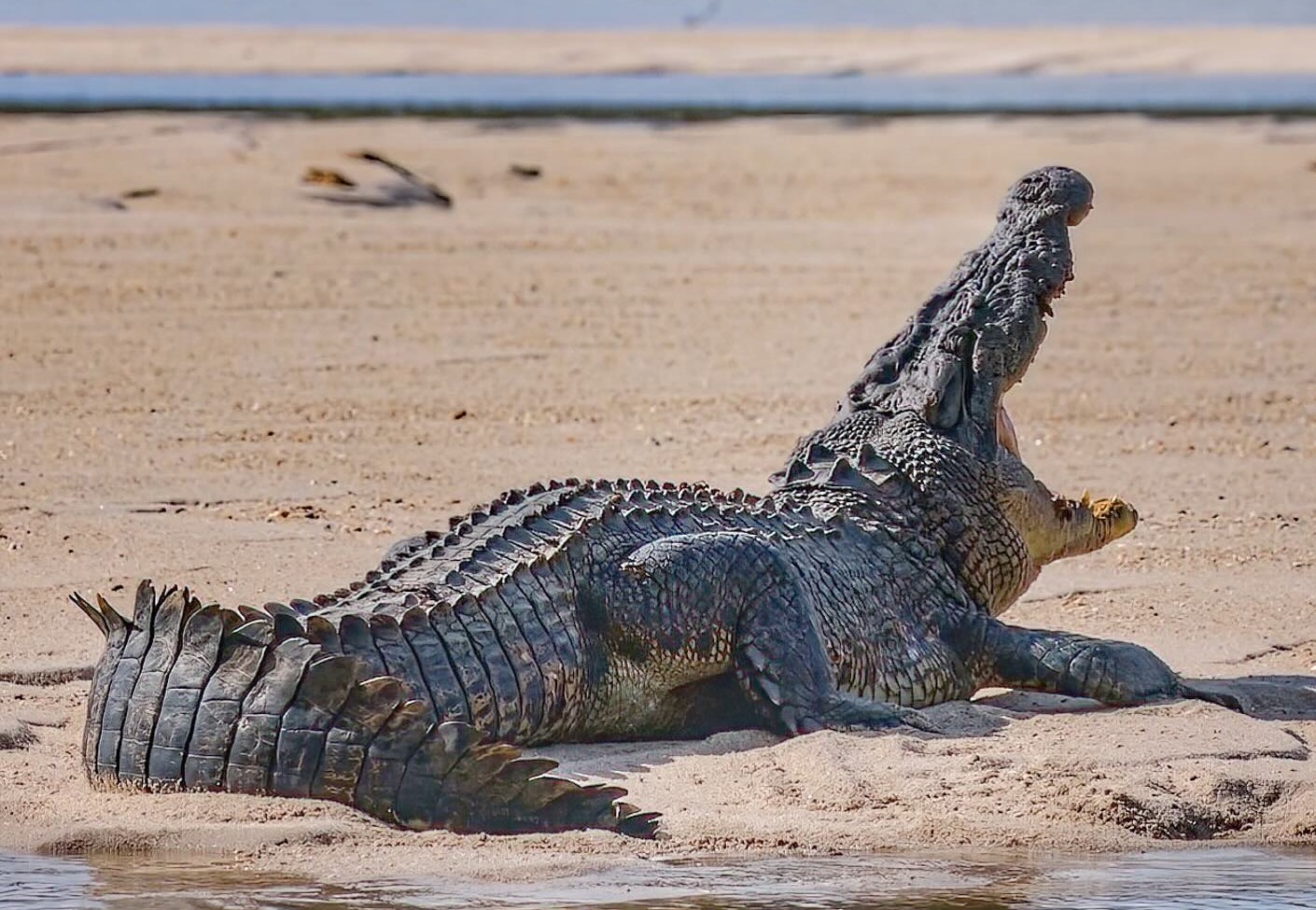
CROCODILE SPEAK: Douglas Shire Daintree River crocs playing their part in astounding research to help us understand them better
SOUND RESEARCH

Will humans one day be able to repel crocodiles back to a safe distance by replicating the sounds the animals make and don’t like?
That and other intriguing questions about the future of improved human – and crocodile – safety might well be answered with the help of current research.
Daintree River crocodiles are playing a big part in the research by the University of the Sunshine Coast.
David White of Solar Whisper Cruises has spent the past 26 years not only taking tourists out to see the crocs in the wild, but also observing their behaviour – and the communications, vocal or otherwise, that they have with each other.
“They seem to do a lot of pairing up, and working on their relationships in the winter months,” Mr White told Newsport.
“When a male approaches a female, she lifts her head up and roars like a lion,” he said. “It’s quite an impressive sound.
“It sounds a bit aggressive but it’s not; it’s a welcome. The male responds with a rumble – a sort of like thunder sound coming from the bottom of a well.
“It’s loud, you can actually feel it when your close, you can feel it in your body because it’s very low frequency.”
Sound recordings from Daintree
Mr White has shared about 60 videos he has taken of many different crocodile intreactions in the Daintree River, with UniSC’s honours student Sonnie Flores, who is leading the project.
With his help, she is looking at the context of the videos and taking note of the sounds the crocodiles are making on them, to try to make head or tail of what they mean, and what the crocodiles are ‘saying’.
“If you just show a short bit of video with some noises, you know a lot of the experts will say ‘that’s an aggressive thing’ – whereas I’ll know because I was there and know that it’s not, it’s just some courtship going on.”
Mr White said he has observed over the years that crocodiles are much more social creatures than we might think.
He believes the current study of their sounds, will help towards the safety of humans when near or around crocodiles, such as at water holes and swimming spots – and ultimately, in regard to the crocodiles’ own survival too.
“If you can work out what they’re ‘saying’ and perhaps imitate those sounds, you can perhaps repel them in the place that you don’t want them,” he said.
“If they (researchers) can work out a way of transmitting the sound that the crocs don’t like, and they can repel them downstream again, that would be great.”
Support local journalism
If you’d like to support our journalists and independent journalism in the Douglas Shire please support Newsport by hitting the Support Us button on the top of the page.
Thank you!
Newsport thanks its advertising partners for their support in the delivery of daily community news to the Douglas Shire. Public interest journalism is a fundamental part of every community.
Got a news tip? Let us know! Send your news tips or submit a letter to the editor here.
* Comments are the opinions of readers and do not represent the views of Newsport, its staff or affiliates. Reader comments on Newsport are moderated before publication to promote valuable, civil, and healthy community debate. Visit our comment guidelines if your comment has not been approved for publication.
